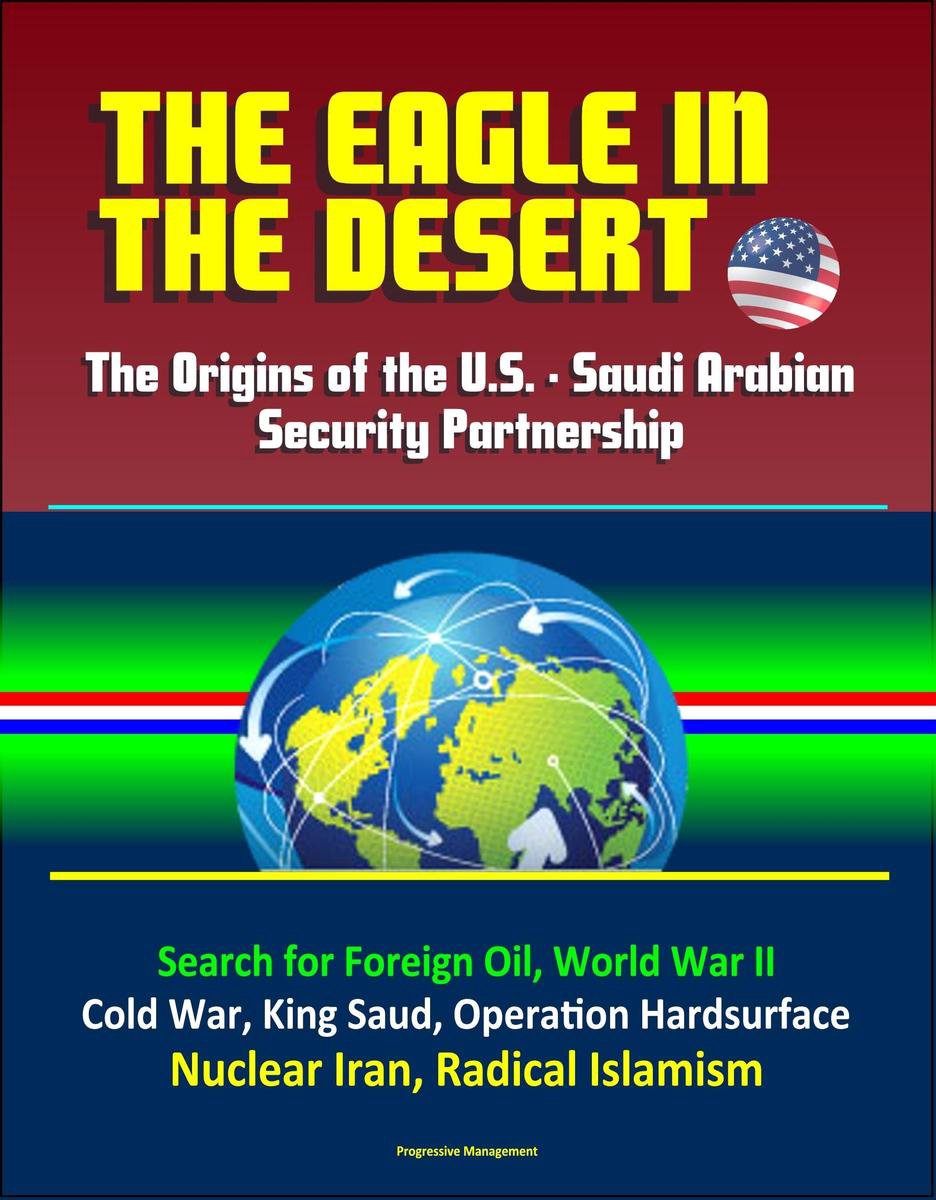The Eagle in the Desert: The Origins of the U.S. - Saudi Arabian Security Partnership - Search for Foreign Oil, World War II, Cold War, King Saud, Operation Hardsurface, Nuclear Iran, Radical Islamism
This excellent report has been professionally converted for accurate flowing-text e-book format reproduction. The United States and Saudi Arabia share a robust and complex security partnership today. This study explores the origins and development of U.S.-Saudi security cooperation between the late 1920s and early 1960s. During this time, U.S. leadership began to incorporate ideological objectives into their once largely analytical foreign policy. Scholarly historical literature, first-hand accounts of U.S. officials and government documents reveal that what once began as a business relationship in the 1930s rapidly developed into a security partnership designed to defend against the threat of Soviet communism by the 1950s. Initially interested in Saudi Arabia because of its oil, the United States began to view the kingdom with increasing geostrategic importance during the early Cold War while Saudi Arabia simultaneously benefited from U.S. military assistance for protection against regional threats. This study provides historical evidence and analysis of how U.S.-Saudi security cooperation helped the United States reach both its analytical and ideological goals in the past, which suggests that value exists in continuing this relationship today, despite the many challenges that it currently faces. CHAPTER I - INTRODUCTION * A. IMPORTANCE * B. LITERATURE REVIEW * 1. The 1920s and 1930s * a. The Search for Foreign Oil * b. Saudi Leadership * 2. World War II * 3. The Cold War * a. Oil * b. Ideology * c. Geostrategic Interests * C. PROBLEMS AND HYPOSTUDY * CHAPTER II - THE 1920s AND 1930s: OVERSEAS OIL * A. DOMESTIC POLICIES * B. BRITISH COMPETITION * C. THE GREAT KING * D. CONCLUSION * CHAPTER III - WORLD WAR II: OIL, LOCATION AND NATIONAL SECURITY * A. NATIONAL SECURITY: THE LEND-LEASE ACT AND THE FOREIGN PETROLEUM POLICY * B. IBN SAUD AND THE BRITISH * C. THE UNITED STATES GAINS FAVOR * D. CONCLUSION * CHAPTER IV - THE COLD WAR ERA: PROTECTING SECURITY INTERESTS WITHIN AN IDEOLOGICAL FRAMEWORK * A. PRESIDENT TRUMAN * 1. The Soviet Threat * a. Religion and Ideology * b. Geostrategic Interests * 2. Israel * 3. Financing a Kingdom * B. PRESIDENT EISENHOWER: A NEW DOCTRINE AND A NEW KING * 1. The Eisenhower Doctrine * 2. A New King * a. King Saud and the Middle East * b. King Saud and the British * c. King Saud and the United States * C. PRESIDENT KENNEDY: A NEW APPROACH WITH OLD RESULTS * 1. Tension and Friction * 2. Dhahran Airfield * a. King Saud Bends to the Arab Nationalists * b. A Diplomatic Breakthrough * c. The U.S.-Saudi Security Paradox * 3. Operation Hardsurface * a. Playing Favorites * b. Kennedy Shifts His Approach * c. Drawdown and Fallout * D. CONCLUSION * CHAPTER V - U.S.-SAUDI SECURITY CHALLENGES OF TODAY * A. IRAN * 1. A Nuclear Iran * 2. Economic Competition * B. RESURGENCE OF RUSSIAN INFLUENCE IN THE EASTERN HEMISPHERE * 1. Economic Influence * 2. Russia and a Nuclear Saudi Arabia * 3. Shifting Alignments * C. RADICAL ISLAMISM * D. THE PETROLEUM-BASED ECONOMY * E. HUMAN RIGHTS * F. CONCLUSION * CHAPTER VI - CONCLUSION * A. HISTORICAL ANALYSIS * B. TODAY * C. THE WAY FORWARD
- Ean/ISBN: 9781370392384
- Review:
